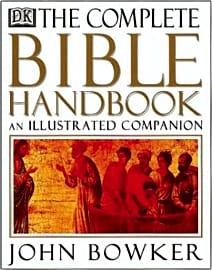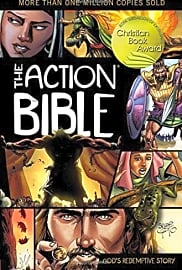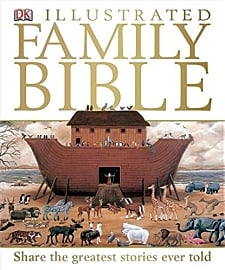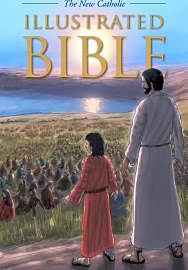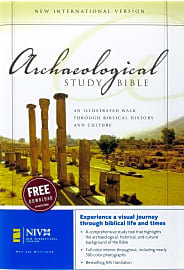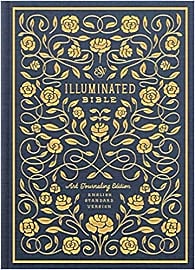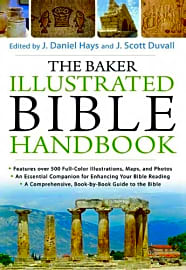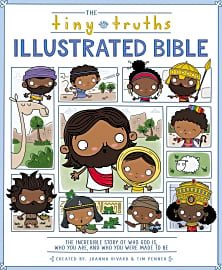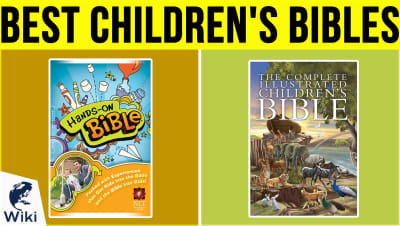The 10 Best Illustrated Bibles

This wiki has been updated 42 times since it was first published in August of 2015. Enhance your enjoyment of the Scriptures with one of these illustrated Bibles. Their stunning pictures and abundant reference materials should be of interest and educational value to any theologian. We've also included a few selections that were specifically created to make religious works more easily accessible to younger readers, as well as handbooks to enhance your study. When users buy our independently chosen editorial choices, we may earn commissions to help fund the Wiki.
Editor's Notes
January 27, 2020:
Any theologian will tell you how crucial it is to meditate on and understand the teachings in the Bible. Having an illustrated one handy can help make that challenge less daunting by giving useful contextual information and helping to bring these ancient stories to life. For our list, we wanted to include selections both for children and adults, in addition to The Baker Handbook and The Complete Bible Handbook, two volumes dedicated to explaining the individual books, as well as the cultures, customs, and histories behind them. We also have an entire list dedicated to children's bibles, if that's what you're looking for.
Today we brought The Tiny Truths and ESV Illuminated on board. Tiny Truths is an excellent choice for younger tots, with clear language and charming illustrations that are modest and benign. Our other children's choices, The New Catholic and The Complete Illustrated Children's Bible are ideal for elementary school-age kids, but be aware that some of the images can seem scary.
ESV Illuminated is a different kind of illustrated bible, which focuses on aesthetic drawings that enhance the text and beautiful hand-lettered verses selected and amplified for contemplation. It's made with thicker paper than most others so that the reader can also journal, draw, and write prayers and notes. If you're looking for a creative way to meditate on God's word, this attractive option is a solid choice.
These texts were added at the expense of JPS Children's, which is still a lovely choice, although it's limited to the Old Testament, and the Zondervan Dictionary, another great option that, nevertheless, didn't quite fit our criteria for this list.
The Importance Of Bible Study
And like any good book, when carefully read, it isn't hard to find something that speaks to you.
Few documents warrant the kind of rigorous and repetitive study as does the Bible. It is supposedly the best-selling book of all time, though some of those numbers are hard to quantify. Its words are held as the voice of God by millions and millions of people worldwide, and its teachings and philosophies are believed by many millions more the world over. But you don't have to be a religious person to appreciate the Bible, as it offers insight of one kind or another to anyone who opens it.
For anyone of the Christian faith, the importance of the Bible cannot be overstated. It is the central text chronicling the creation of the universe, the earth, and mankind, and traces our long journey to the present moment and beyond. If you are at all serious about your faith, then studying the Bible is the most effective way to understand your purpose in life.
If you come to know the Bible inside and out, you can turn to it in times of need for guidance in almost any situation. The Old Testament provides some basic laws, many of which have been called into question even by the church itself, but many more of which are grounded in a basic level of respect for your fellow human beings. The New Testament forgoes that basic level of respect in favor of a more profound love. It is in this half of the Bible where you will encounter the teachings of Christ and the story of his life.
For those of you who are skeptical of what the Bible has to offer you, it's important to remember that the sheer force of belief in this book gives it a kind of cultural power that you need to respect. Great writers throughout history have understood this. And if you wish to understand the inner workings of Milton, Melville, Shaw, and dozens of other brilliant artists throughout history, you would do well to have an understanding of the Bible.
Readers of any and all faiths, or even no faith, will agree that the Bible, in parts if not the whole, is particularly well-written. It can get a little boring at times, especially in the beginning when the Book of Genesis details the long and surprisingly incestuous journey of the human race as it sprung forth from the Garden of Eden, but much of the language contained in its pages is elevated and interesting. And like any good book, when carefully read, it isn't hard to find something that speaks to you. Whether it's the poetic musings in the Book of Psalms, the words of Jesus spoken in his Sermon on the Mount, or the brutal descriptions of the Fall of Sodom and Gomorrah, there's a little something for everyone.
Why It’s Smart To Use An Illustrated Bible
Upon first hearing of illustrated Bibles, you’d be forgiven for assuming that these tomes were specifically directed at children. We tend to grow up with picture books, slowly work through a stage of books that contain fewer and fewer images, and eventually graduate to books that have little to no images to speak of. Which is a shame when you think about it because a good picture can convey a tremendous amount of useful information. Moby Dick, to return to Melville for an example, is much easier to understand with a good diagram of a ship with all its important parts clearly labeled. Likewise, a Bible with detailed maps of areas of interest, along with artists’ renderings of important people, can help complete the picture of your Bible study.
Moby Dick, to return to Melville for an example, is much easier to understand with a good diagram of a ship with all its important parts clearly labeled.
That said, there are some great models out there that are intended to ignite children’s imaginations as they make their way through the stories contained in their pages. There’s no arguing that children are particularly imaginative all on their own, but images of the ancient structures of the Old Testament, or of borderline heroic figures like Jesus or Job aren’t there to fill in the gaps in kids’ minds so much as to help keep them engaged in a story the same way that images in other children’s books do.
You'll also notice as you peruse the options on our list, that not all of the illustrated Bibles on the market are simply Bibles with pictures in them. Many contain additional text that doesn't originate in the Bible, but that adds useful information to your reading and interpretation. Much of that information is often supported by images, maps, charts, and more. These Bibles are particularly well-suited individuals who have already read through the text once and would like to go deeper with a little help, as well as those who want their first time through the Bible to be as detailed and comprehensive as possible.
A Moment In History Of The Bible
The history of the Bible is long and storied. It would take far more space than I have to write to give you a comprehensive lineage of its texts and consolidation. What I can do in this short space, however, is give you a glimpse at one of the most fascinating moments in the Bible's history.
What I can do in this short space, however, is give you a glimpse at one of the most fascinating moments in the Bible's history.
When King James I came to power in England in 1603, an explosion of translations of both secular spiritual and religious texts had begun to upset any attempt at harmony among the various Christian communities in England. In 1604, James sought to unify the translation of the Old and New Testaments in a manner that would please all parties, but that would, most of all, sustain the power structure of the Anglican Church.
The result of this project, completed nearly a decade later, was the work of some 47 translators. It included many books favorable to the Anglican Church, while excluding certain Gospels whose origins and messages were deemed suspect. At this point in history, most readers take this translation at face value as a direct transmission from its first utterance to their very eyes. While the accuracy and intent behind this and other translations can't necessarily be proven one way or another, perhaps the addition of images to the text can help readers’ imaginations create a personalized picture that they can believe in.



